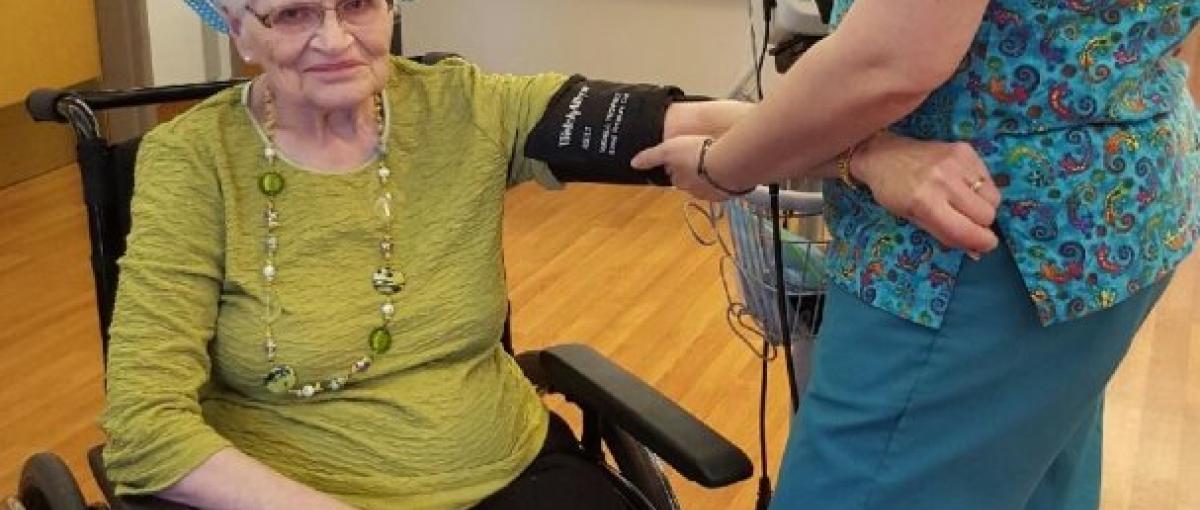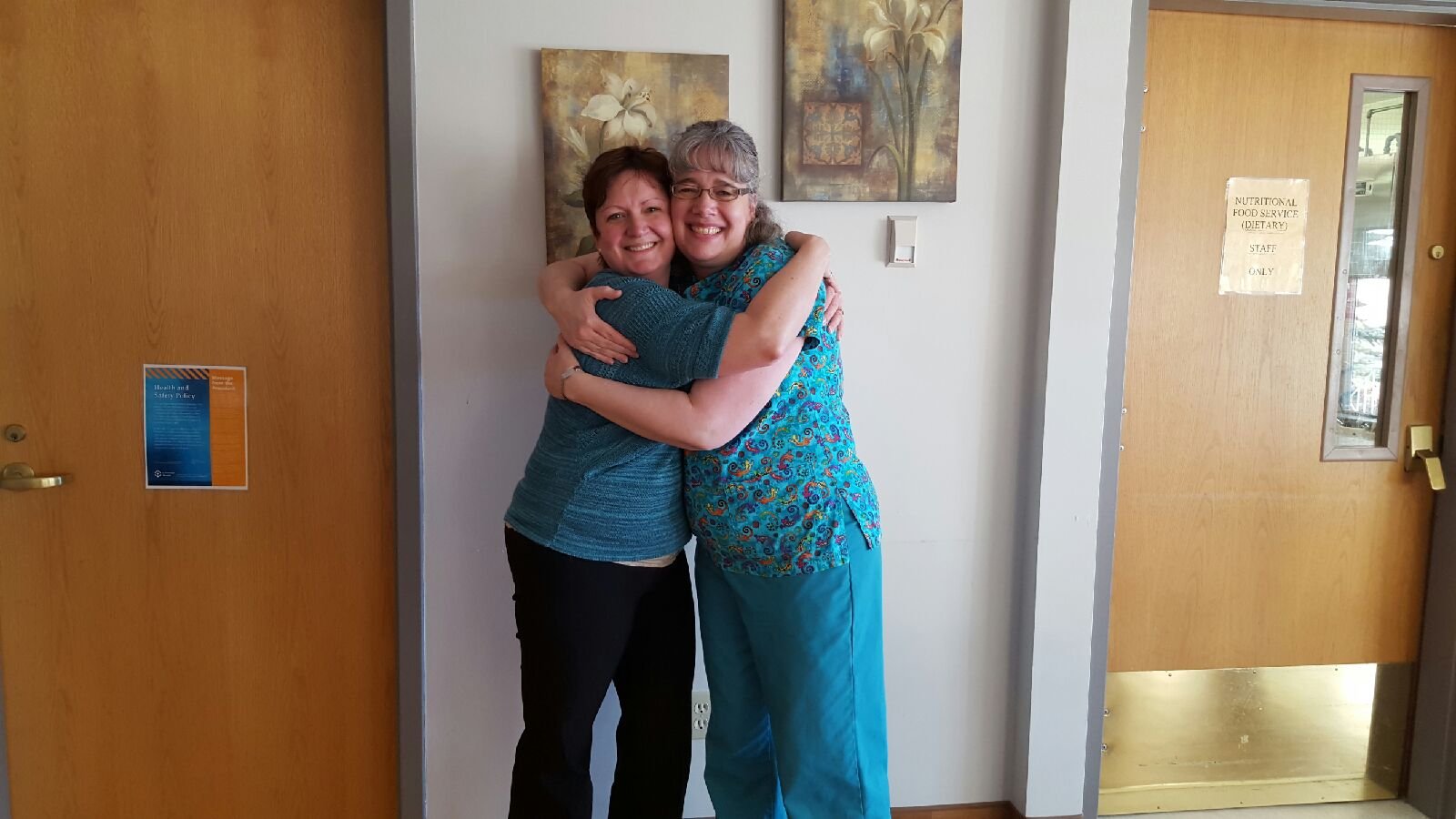Putting families in the driver's seat
Our Lady of the Rosary connects physical, spiritual and emotional healing for residents

October 10, 2016
By Tessia Verbeek, Senior Advisor, Communications, Covenant Health
Trusting others to care for your loved ones is never an easy decision. But when those caretakers feel like extended family themselves, it’s a win-win for everyone.
For Bob Rombough, it was a difficult but necessary decision to place his uncle Kenny into long-term care at Our Lady of the Rosary Hospital in Castor.
“He’s taken a couple of falls and needs the extra attention,” says Bob.
Part of Castor’s road to success includes the addition of the care co-ordinator role. It is a collaborative role between two registered nurses that dedicates six shifts a month to enhancing the quality of resident care. The role organizes appointments and ensures individual care planning is up to date and communicated to everyone on the care team.
“One of the changes with the biggest impact has been dedicating time to family members,” explains Leona Storch, Clinical Nurse Educator (formerly Staff Nurse) and co-creator of the role. “Once a month, we contact the family to talk about their loved one’s care. If there are lots of questions, we set up a meeting in person.”
Families are invited to call anytime they have questions or concerns, but a phone call is expected at least once a month.
“They’re really good at phoning,” Bob says. “Whether it’s to check in or if something happens—like when Kenny fell or if he changes his diet.”
Bob has taken the care co-ordinators up on their in-person offer, as well: “I came in and talked to a nurse, the medication administrator, his nutritionist and the chaplain. We had a really good talk about his care and how I felt about it.”
Brenda Brigley, Clinical Manager, co-designed the care co-ordinator role with Leona and champions the approach.
“The frequent and consistent communication with families and residents builds relationships, gives them the opportunity to express themselves and be heard, and involves them in the process of planning individualized care and problem-solving,” says Brenda.
“Everyone is happier because they know what’s going on,” adds Leona.
The care co-ordinators also take on projects, which have had a positive impact on residents’ health.

“We provide consistency in collaborating with everyone involved in the residents’ care,” says Leona. “We’re picking up infections or side-effects much quicker, which means we can evaluate and provide treatment proactively.”
“Our goal is to involve families in care,” says Brenda. “And the outcome is better skin integrity, dietary observations, increased mobility—it’s a ripple effect. Physical, spiritual and emotional healing are all connected.”